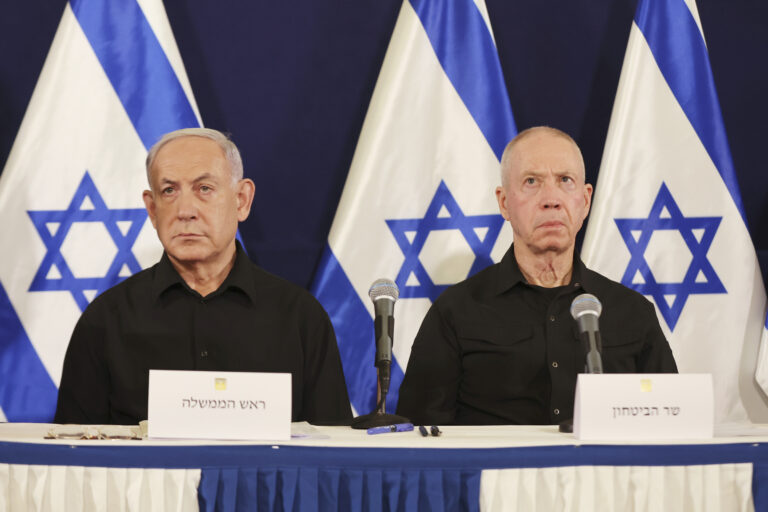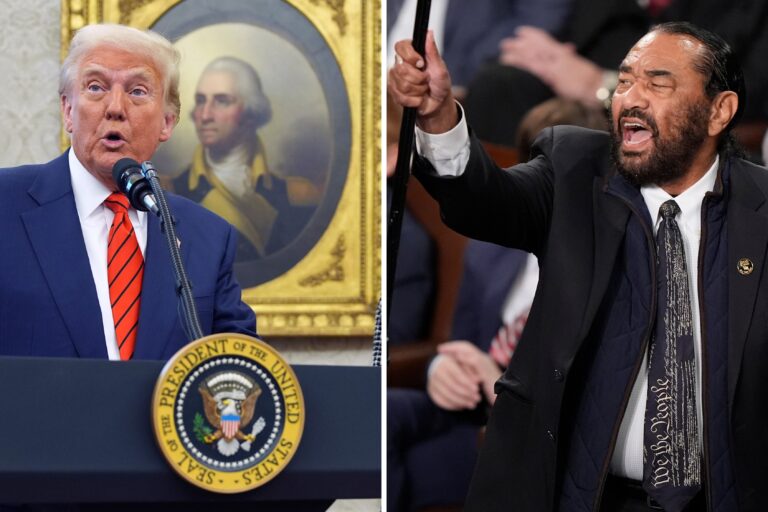In a scathing interview aired Thursday, former Defense Minister Yoav Gallant accused Prime Minister Benjamin Netanyahu of repeatedly hesitating to use military force against Hamas and Hezbollah, undermining a potential hostage-ceasefire deal, and failing to implement a political strategy to build on Israel’s military gains in Gaza.
Gallant, who was dismissed by Netanyahu in November, broke his silence in his first Israeli television interview since leaving office. Speaking with Channel 12’s Uvda, he did not hold back in criticizing Netanyahu’s handling of the ongoing war, arguing that Israel had squandered a critical opportunity to strike Hezbollah early in the conflict.
Gallant revealed that just days after Hamas launched its brutal October 7, 2023, attack on Israel, he had pushed for an immediate large-scale offensive against Hezbollah in Lebanon. According to Gallant, intelligence indicated that Hezbollah’s senior leadership, along with high-ranking Iranian officials, were gathering in a known location on October 11. A well-planned aerial strike, he argued, could have wiped out much of Hezbollah’s command structure, including its leader, Hassan Nasrallah.
“We knew that senior officials from Hezbollah were going to convene. We could have attacked from the sky and taken out heads of Hezbollah and also Iranians—Nasrallah, all the rest. The entire top echelon of Hezbollah,” Gallant asserted.
However, when he presented the plan to Netanyahu, the prime minister declined to authorize the attack, citing concerns about Hezbollah’s retaliatory capabilities. According to Gallant, Netanyahu feared Hezbollah’s response would devastate northern Israel, pointing to buildings outside his office and warning, ‘You see these buildings? All of this will be destroyed.’
Gallant firmly rejected that reasoning. “Hezbollah as a military organization would have ceased to exist—no leadership, no missiles or rockets, most of its operatives killed in the field,” he claimed.
Beyond the military front, Gallant accused Netanyahu of delaying crucial decisions regarding the Israeli hostages taken by Hamas on October 7. He contended that a more favorable hostage deal had been available in early July 2024 but was rejected under political pressure.
“We could have brought more hostages home, earlier, and at a lower cost,” Gallant lamented. “The proposal in early July, that Hamas agreed to, is identical to the deal now—just worse in several ways. There are fewer hostages alive, I’m sorry to say. More time has gone by, and we’re paying a heavier price.”
Gallant blamed Netanyahu’s political maneuvering for the failed deal, alleging that leaks to right-wing ministers, including Finance Minister Bezalel Smotrich, led to its collapse. When Smotrich discovered that Israel was considering withdrawing from the Netzarim Corridor in exchange for 18 hostages, he threatened to quit the government, effectively derailing the negotiations.
“It took a few days for Hamas to understand what was happening from the Israeli media, and they backed out of the deal,” Gallant explained. “And it only came back at the end of May, through the president’s speech.”
Gallant also revealed that Netanyahu was hesitant to launch the IDF’s ground invasion of Gaza, fearing massive Israeli casualties. According to the former defense minister, Netanyahu estimated thousands of Israeli soldiers would die in the operation, an assumption Gallant strongly disputed.
“I told him, there won’t be thousands killed—and beyond that, what do we have an army for? If after they kill a thousand of our citizens, kidnap them, murder women and children and the elderly, we won’t carry out the operation?” Gallant recounted.
He added that Netanyahu further justified his reluctance by arguing that Hamas would use hostages as human shields. But Gallant countered, saying that Hamas actually had an interest in keeping hostages alive, as they were a strategic asset.
Perhaps one of Gallant’s most damning criticisms was that Netanyahu has failed to provide any clear political vision for what comes after Israel’s military operations in Gaza. He accused the prime minister of refusing to build an alternative to Hamas governance, instead leaving a vacuum that risks prolonging instability in the region.
“For a year, I said ‘build an alternative,’” Gallant emphasized. “The prime minister, even though they attacked me, agreed to this. But what was needed wasn’t done.”
Gallant also slammed proposals from far-right politicians advocating for Israeli military rule in Gaza and the reestablishment of Jewish settlements in the Strip, calling such ideas “detached from reality.”
“The results will be disastrous,” he warned.
Despite his criticisms, Gallant insisted he would remain in Netanyahu’s Likud party, though he expressed deep concerns about its current direction. He denounced efforts by right-wing lawmakers to undermine Israel’s military leadership and opposed efforts to formalize draft exemptions for ultra-Orthodox yeshiva students.
“The issue of Haredi enlistment is a clear example of where the Likud faction has strayed from its path,” he said.
Gallant also renewed his call for an official state commission of inquiry into the failures leading up to and following Hamas’s October 7 attack. He pledged full cooperation, stating, “The public will decide, preferably after it hears from a state commission of inquiry who is responsible and why.”
Netanyahu responded to Gallant’s accusations on Thursday, defending his decision to avoid a simultaneous war with Hezbollah and Hamas. Speaking to Channel 14, a right-leaning Israeli network, Netanyahu claimed that launching a second front in Lebanon so soon after October 7 would have been “a horrible mistake.”
He also disputed Gallant’s assertions about the scale of the planned Hezbollah strike, arguing that only around 150 booby-trapped pagers were in Hezbollah’s possession in October 2023, rather than the “thousands” Gallant described.
(YWN World Headquarters – NYC)











